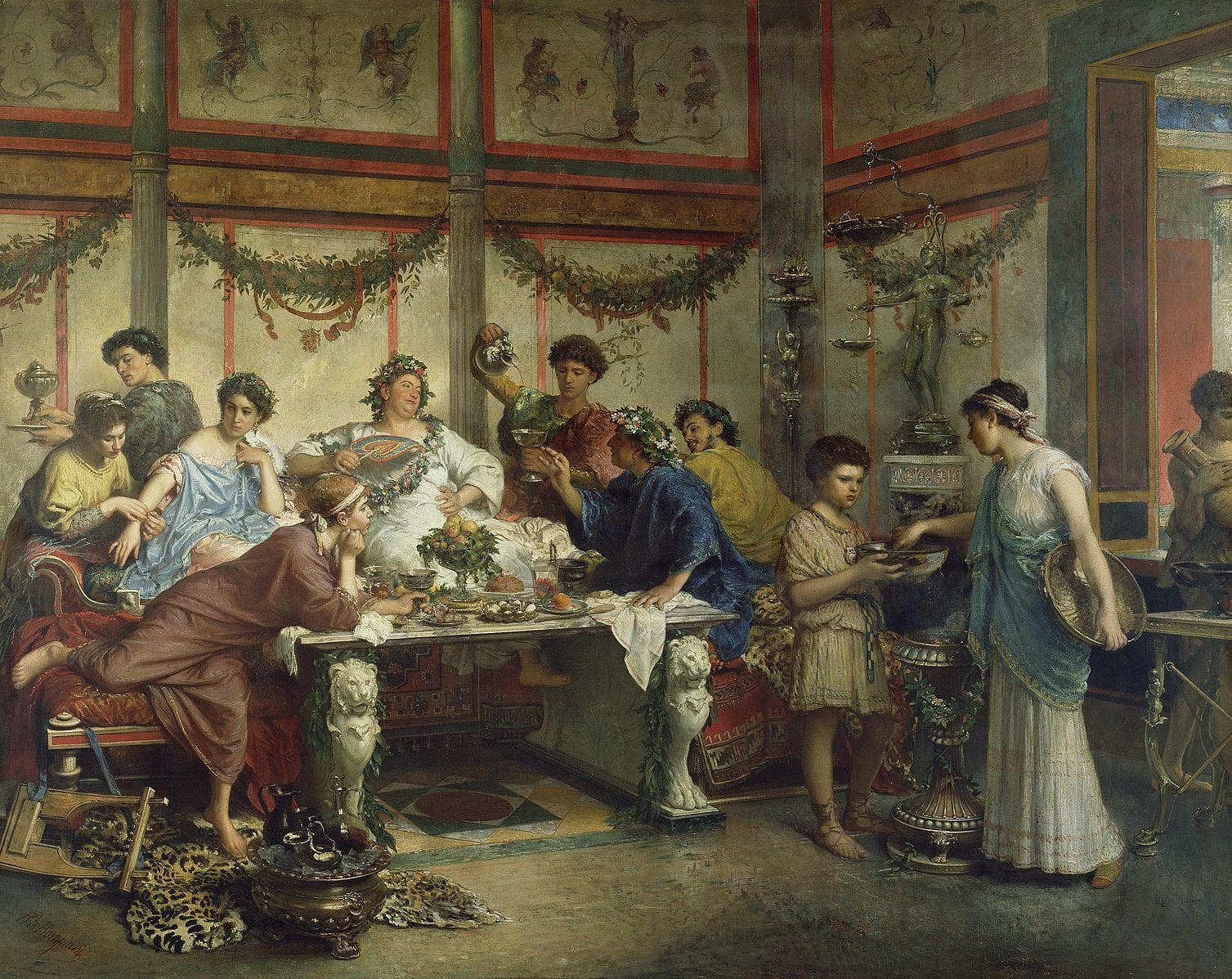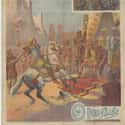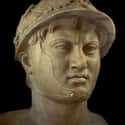-
(#8) Jugurtha
- Dec. at 56 (159 BC-103 BC)
Jugurtha, prince of Numidia in north Africa, was the son of a famous king who worked with Rome. Jugurtha slowly but surely eliminated every rival to his throne, all while he supported the Romans in battle against the Carthaginians, learned Latin, and became BFFs with senators. Eventually, relations went sour, though, when Jugurtha killed some Italian merchants, and the Romans went to war against him around 111 BCE.
Rome didn't exactly acquit itself well, and the two lands made a treaty, which didn't last long after Jugurtha offed another rival to his throne. Marius, a seven-time Roman consul (and Caesar's uncle by marriage), invaded Numidia and eventually beat Jugurtha with the help of the king of nearby Mauretania. In 105 BCE, Marius brought Jugurtha home and paraded him through Rome in a military triumph; he was dead not long after.
-
(#11) Decebalus
The names of Romania and Rome might have similar etymologies, but the people of the two areas weren't friends in antiquity. Meet Decebalus, king of the Dacians (who lived in what is now Romania) in the first century CE. Like many who opposed Rome, Decebalus united a bunch of individual tribes into one power to oppose their powerful enemy.
With his men behind him, Decebalus attacked the Roman province of Moesia and riled up the Parthians. He'd beaten the Romans a few decades earlier under the tyrant Domitian, but was now facing a new opponent: Emperor Trajan, who flitted to Dacia in 101 to head off Decebalus. Things didn't go well, so Decebalus tried to negotiate in 102 to no avail: Trajan won and made Decebalus a client king (basically a monarch who ruled by the grace of Rome).
A few years later, Trajan got fed up and attacked Decebalus again (but who knows who started it?). Decebalus wound up losing again and committing suicide in 106, a year before Dacia officially came under Roman rule. Modern Romanians think of him as a national hero; one guy even built a colossal head of Decebalus for all to see.
-
(#6) Viriatus
Meet Viriatus. A Spaniard, he led a rebellion against invading Romans, who conquered parts of Iberia throughout the second century BCE. In 151 BCE, the people of the Lusitania region tried to negotiate with Rome during endless attacks; the regional Roman leader mercilessly slaughtered the Lusitanians instead. According to legend, one of the survivors was a dude named Viriatus (a nickname), who wanted revenge.
A few years later, Viriatus led the surviving Lusitanian forces against the Romans, butchering their leader and thousands of men in one battle. Over the course of nearly a decade, Viriatus and his men became the scourge of the Romans in Spain, especially when they pretended they were about to run away, then waged a surprise counter attack. The locals' guerilla warfare and knowledge of Iberian terrain were effective tools against the Romans. But Viriatus couldn't keep it up forever; he made a treaty with Rome and three of his own men betrayed and killed him.
-
(#9) Vercingetorix
- Dec. at 36 (81 BC-45 BC)
Julius Caesar almost met his match in Vercingetorix of Gaul. Caesar invaded what is now France/Germany in 58 BCE, which he famously chronicled in his memoir The Gallic Wars. The Celtic tribes there didn't take his genocide lightly. Rebellions bubbled for several years; a bunch of Gallic tribes united and made Vercintegorix of the Arverni their head warrior. This organized military action made Caesar come across the Cisalpine Alps to head off the Celts.
Several years of raids and minor battles climaxed in late 52 BCE, when Caesar and the Gauls met at Alesia. The Romans besieged the epic fortifications surrounding this fortress; three weeks later, Vercingetorix and his supporters were pretty much devoid of food or supplies. Caesar broke the Gallic forces and took Vercingetorix back to Rome with him in chains; the Gallic chieftain died there years later.
-
(#3) Zenobia
- Dec. at 34 (240-274)
One of the great cities of ancient Syria was the trade center of Palmyra. Sadly destroyed in large part by ISIS, it also played host to the great Arab queen Zenobia, who rebelled against Roman tyranny. First acting as regent to her kid in the third century CE, Zenobia eventually seized power on her own. Although her hubby was once a Roman client king, Zenobia struck out on her own and opposed the Romans. She claimed to be descended from none other than Cleopatra VII, a political lightning rod.
Zenobia conquered Egypt (her ancestral homeland?) in 269 and moved into Asia Minor. The Roman emperor Aurelian got in her way two years later, taking over the key cities of modern Ankara and Emesa in Syria. Aurelian and Zenobia - who led her own troops into battle - exchanged letters, but she remained defiant (after all, she declared herself empress, so she had to live up to the title). Sadly, Palmyra fell, too, and Aurelian captured Zenobia, who either was part of his imperial triumph in 274 in Rome or starved herself to death.
-
(#13) Pyrrhus of Epirus
- Dec. at 47 (318 BC-271 BC)
A "Pyrrhic victory" refers to a battle won at so high a cost the winner is more devastated than the loser. Where did this come from? A king named Pyrrhus of Epirus, a northern Greek realm, who ruled in the late fourth century and late third century BCE. He was one of Rome's first big enemies.
The problems started when a Italian city-state Tarentum asked Pyrrhus for a hand against Rome. Pyrrhus came on in to kick the sh*t out of people in 280 BCE with foot soldiers and elephants; he helped Tarentum win the battle, but lost so many of his own men the victory really wasn't much of a victory after all.
Pyrrhus went up against Rome again, at Ausculum, won, and yet once more suffered a lot of casualties. Eventually, he lost (badly) to Rome in 275 BCE, and went home to Greece.
New Random Displays Display All By Ranking
About This Tool
The Roman Empire was once the most powerful country in the world but gradually collapsed after its history lasted for thousands of years. From military failures and taxes to natural disasters and even climate change, historians have analyzed the collapse of the Roman Empire for a variety of reasons. The most direct reason for the decline of the ancient Roman Empire was that it suffered numerous attacks from external enemies and military failures.
With the rise of many powerful opponents, the division of classes maintained by honor and interest since the ancient Roma no longer makes any sense. The random tool lists the 13 most formidable enemies Roman Empire ever faced.
Our data comes from Ranker, If you want to participate in the ranking of items displayed on this page, please click here.
















